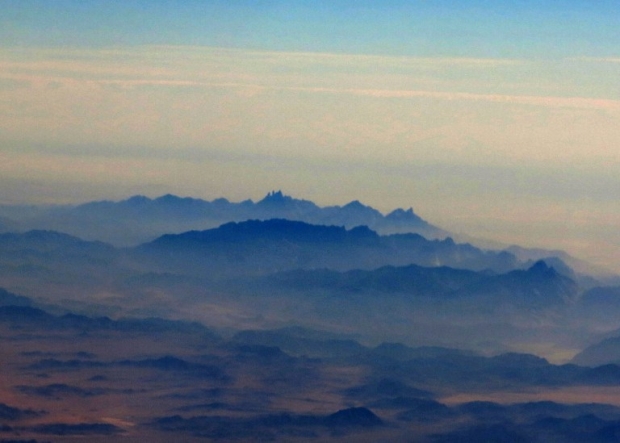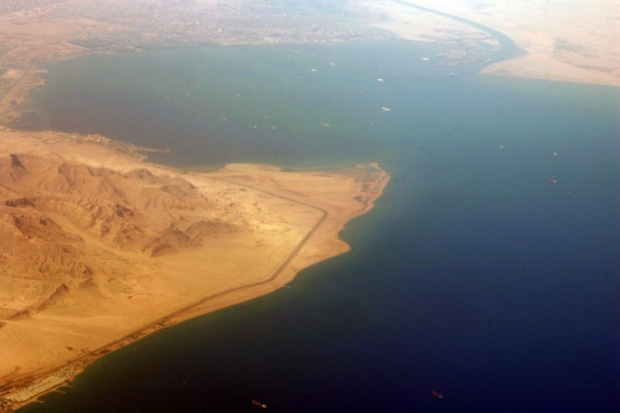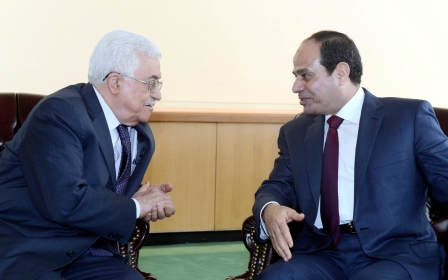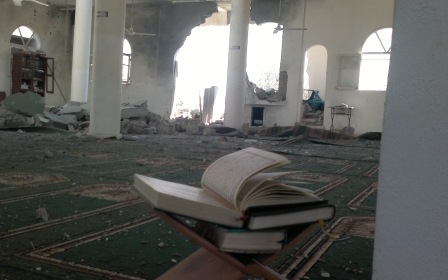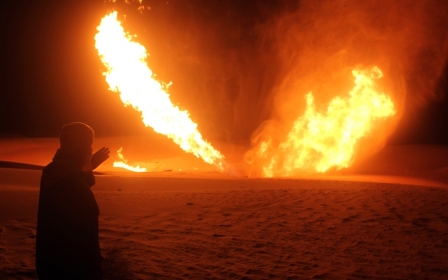Ordinary life grinds to a halt in Egypt’s Sinai
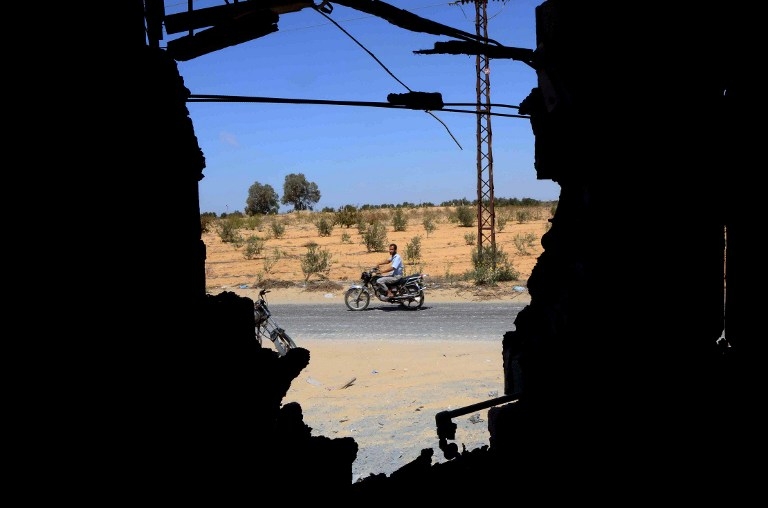
For the last 10 years, Walid Ibrahim's challenge as a taxi driver has been to find the shortest distance between point A and point B for his customers. He works between El-Arish, driving through Sinai to Cairo, Alexandria and Sharm El-Sheikh.
But, ever since the revolution which caused President Hosni Mubarak to step down, his usual routine has changed. Fuel is more expensive, and the ever-growing number of army checkpoints along the way has added long delays to his journey.
Before the revolution, the 45-kilometer drive from the Egyptian city of Rafah to El-Arish took some 35 minutes in his white KIA taxi.
But not anymore.
These days, the same route is blocked by eight checkpoints. On a good day, army troops let Ibrahim pass through with no problems. On a bad day, the story is quite different. If the troops don’t let his vehicle pass, Ibrahim is forced to find alternate routes that avoid the many roadblocks, while evading the bullets that are sent flying in the direction of his car; a harsh warning to keep a distance.
This extra navigation - while necessary to secure Ibrahim’s safety - can take hours, and Ibrahim says that he needs to maneuver for an extra hour or two between each of these roadblocks.
"The security turmoil makes it difficult for me to work," he says, after opening the trunk of his car for a heavily-armed Egyptian soldier to examine its contents.
Since 2011, Ibrahim says that Sinai has known nothing but devastation, tension and growing frustration. Prior to 2011, Ibrahim taxied tourists - but now no one comes to visit historic Sinai for leisure or pleasure, and his business has long since dried up.
The Egyptian army doesn't have it easy either. Their lives are in constant jeapordy and attacks are prevalent. Dozens of soldiers have been killed in recent months.
Sinai is the home of several militant groups, such as Ansar Bayt al-Maqdis, as well as Bedouins, clans and minor disorganised factions. It also houses various gangs of opportunist bullies who monitor the road traffic and strive to extract a quick payoff from motorists.
Ibrahim says that with all these various groups vying for influence and control, he does not know who his friends are anymore.
"In trying to find routes to avoid checkpoints. One can also be mugged, like most of my colleagues whose taxis have been stolen with everything inside," Ibrahim explains.
No one knows who is directly responsible, he adds.
"It is masked people with guns, and the military has no control over them."
Only getting worse
A vicious cycle has ensued. Since President Abdel Fattah al-Sisi toppled Muslim Brotherhood-backed President Mohamed Morsi in July 2013, these Sinai-based militant groups have stepped up attacks on Egyptian soldiers.
Last month, at least 11 soldiers were killed in an attack on an army convoy in Egypt's Sinai Peninsula. These incidents only make life harder for people like Ibrahim, who know that the killing of troops will heighten suspicions for all travellers. As far as the Egyptian military is concerned, there are no exceptions to be made, not even for an ordinary taxi driver who's just trying to make a day's wage to feed his wife and five kids and pay the bills.
Sinai is more than 150 kilometres east of the capital, Cairo, but it is, nevertheless, considered a strategically key part of Egypt. Located between Israel and Palestine's Gaza Strip, it is also home to the Suez Canal - a huge and vital revenue source for Egypt in a long fought-over region.
Sinai is the only part of Egypt that is located in Asia as opposed to Africa. It is home to 1.4 million people, and is seen as land bridge between two continents.Ever since the Egyptian revolution of 25 January 2011, however, the Al-Salam bridge that allows cars and people through the Suez Canal has remained shut - forcing Ibrahim to take other routes that take even longer.
"We asked them why the canal is still closed, but the army tell us it is for security," he says.
No one knows how long this situation will continue, but right now Ibrahim is forced to wait in a long line of hundreds of trucks carrying just basic supplies between northern Sinai cities such as El-Arish and Zwuied.
"No one benefits from all of these life restrictions," he says, as he raises his shaking hand to take a long drag from his cigarette.
As a taxi driver, Ibrahim feels that the blame lies with the military; he thinks that they should have cracked down harder on the militants, to at least allow people to move around freely once again.
"If I get caught in-between the military and the militants fighting, I risk getting shot too. Another taxi driver had to flee his vehicle it was seen as a threat and was burned," he says.
"We are forced to take dangerous routes and feel like we are approaching certain death, for sure," adds Ibrahim as he blinks, trying to navigate his way through the crowds.
These alternate routes which taxi and truck drivers are forced to use, worsens the situation - many Sinai inhabitants don't feel secure enough to commute between, and outside of the Peninsula, which is only compounding the problem.
This sense of confinement is not just due to tightened security, Ibrahim explains, but also the discrimination that drivers with license plates marked “Sinai” constantly complain about. Coming from the Sinai means being pulled aside for rigorous inspection, document examinations and intensive questioning by Egyptian military and police forces.
“It’s all stressful and time-consuming,” Ibrahim says.
Plates of discrimination
The lack of jobs has forced most of Sinai's inhabitants to seek employment outside the peninsula. There are resources, but many businesses closed due to a worsening security situation and the restrictions applied by Israel and Egypt on Gaza's borders, a previously busy point of mobility for job-seekers that benefitted both Gaza and Egypt.
Huge portions of agricultural land are not being utilised properly, but there is not much to do when investors fear heading to the troubled Sinai and worry that their contracts could be shut down of left half-finished.But a brave and daring taxi driver doesn't have the luxury of choice; he must weigh the odds of making daily money to survive, against facing discrimination or getting shot at. Still, his family must eat, he says.
"I just want to live a decent life - but I feel the injustice every day, between us the Sinai people and any other Egyptian national in Cairo," he says.
Ibrahim does not experience this injustice when he walks on the streets, until he is forced to produce his ID showing where he was born, but then he is made to feel unfortunate, just because he was born in Sinai.
Ibrahim is a Muslim and there are no Sinai Jews, but he says there is a growing feeling among the population at large, that those from Sinai are either close to Israelis or side with the militants.
The government in Egypt makes no distinction between the Brotherhood and armed groups operating in the Sinai, where the support for the Brotherhood remains intact.
These days, Ibrahim says, traveling from north of Sinai to Cairo, he is forced to navigate about 15 checkpoints, and every time there is a risk of something going wrong.
"We are oppressed and not recognised as citizens of our own nation," he says. "If we were recognised, we would have the right to join the army and find employment with the government."
Most Egyptian troops operating in Sinai are from outside the region. Growing frustration and tensions among the young people will bring an explosion within the region, warns Ibrahim.
"The lack of jobs and chokehold security will naturally make us explode, like a volcano, one day," says Ibrahim, after he is stopped again at a checkpoint and questioned as to where he is going and why.
"At a time when taxi drivers from outside Sinai are allowed through without a question, I feel as if I've been disowned by my own nation."
There are questions that he can’t explain to his small children and it is hard to tell them who they are and why they don’t feel united with the rest of Egypt.
"It's not easy. That feeling of discrimination and rejection is not pleasant, and I don't need to be forced into knowing where I belong either. I know my nationality already."
New MEE newsletter: Jerusalem Dispatch
Sign up to get the latest insights and analysis on Israel-Palestine, alongside Turkey Unpacked and other MEE newsletters
Middle East Eye delivers independent and unrivalled coverage and analysis of the Middle East, North Africa and beyond. To learn more about republishing this content and the associated fees, please fill out this form. More about MEE can be found here.


